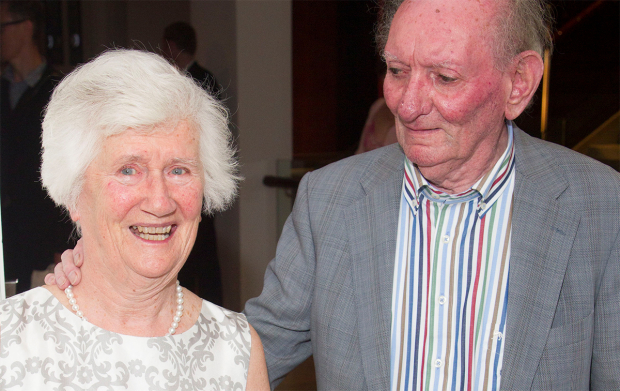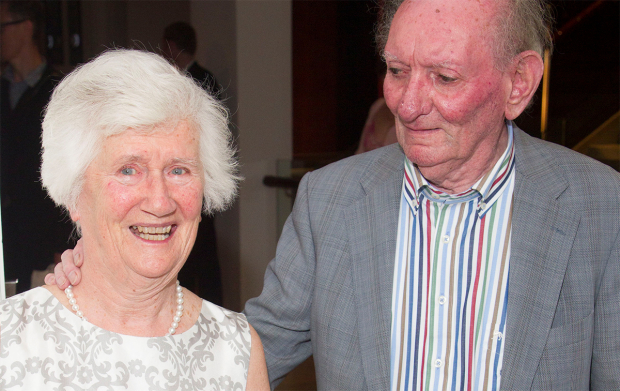”Dancing at Lughnasa” at the National Theatre – review

© Johan Persson
They come at the close of Brian Friel’s magnificent memory play Dancing at Lughnasa, first seen at the National Theatre in its original Abbey Theatre production in 1990, and now revived with shining care by director Josie O’Rourke and a glorious cast including Siobhán McSweeney (of Derry Girls fame) and Ardal O’Hanlon, best known for Father Ted. It is a glory, full of emotion and power.
It’s set in the summer of 1936, on the eve of the harvest festival of Lughnasa. The sisters have just welcomed home their brother Jack (O’Hanlon), a priest and a missionary who has arrived sorely changed and under a cloud. Kate (Justine Mitchell) keeps stern order, while Maggie (McSweeney) cracks jokes and relaxes with a “Wonderful Wild Woodbine” cigarette, “next best thing to a wonderful, wild man.”
Every one of the sisters is constrained by their circumstances, and their lives are dominated by the actions of men who seem peripheral but whose behaviour defines them. Chrissie, Michael’s mother (luminous newcomer Alison Oliver) waits on the comings and goings of his feckless father Gerry (Tom Riley), her face lighting up with joy at his occasional appearances; Agnes ekes a living knitting gloves and caring for her sister Rose, who has learning difficulties. “I want to dance,” she cries. “I’m only 35.”
Robert Jones’s beautifully detailed design shows a road leading away through corn from their tiny home; screens of threads hang over the diorama of the changing sky behind as befits a play set in someone’s memory. The entire setting, lit by Mark Henderson, becomes a metaphor for the women’s lives. There is a road away and a world beyond, but they are trapped by convention, by society, by their own expectations.
Rourke’s production is alert to their physical proximity and constriction; they literally fall over each other as they try to fulfil their daily tasks, they peer through imaginary windows when Gerry arrives, they make a circle around the troubled and troubling Jack, who stops them folding their washing as he recites his stories of Ugandan rituals.

© Johan Persson
At the heart of their frustration is a dance, potently choreographed by Wayne McGregor to be wild and whirling, full of passion and regret, filling the entire space in a sudden eruption of suppressed feeling, casting a beam over all that is to come and so full of joy that the sadness and self-sacrifice of their stories is more intense.
Dancing and its capacity to move beyond words is the thread that pulls Michael’s memories together, and Tom Vaughan-Lawlor, standing a little aside from the action, as if watching his seven-year-old self, gives a directness to his poetic recollections. Through him, Friel weaves a structure that both tells you what you are about to witness and yet still involves you in the narrative’s slow unfolding. In this way, the play is about writing and memory just as much as it is about society and women, and Ireland. It is so full of richness that each viewing brings a different insight.
The performances are as complex as the play, noting each beat and nuance of feeling in the sisters’ lives. Mitchell is both “a righteous bitch” and a deeply anxious, kind woman, constantly rowing back on the decisions she has made. McSweeney revels in Maggie’s bluff humour but also unearths her undertow of melancholy as she looks back on her life.
The moment when she realises that Louisa Harland’s heartbreakingly gentle Agnes is also in love with Gerry is perfectly pitched; Harland’s own slump into desperation, curled in a chair as life breaks around her, is delicately marked. O’Hanlon too walks a tightrope of humour and feeling as the broken priest, while Bláithín Mac Gabhann cleverly underplays Rose’s difficulties while registering her suffering.
The judgement of each performance makes this portrait of a family deeply affecting, but every aspect of the production honours a play that feels as fresh as the day it was written.












